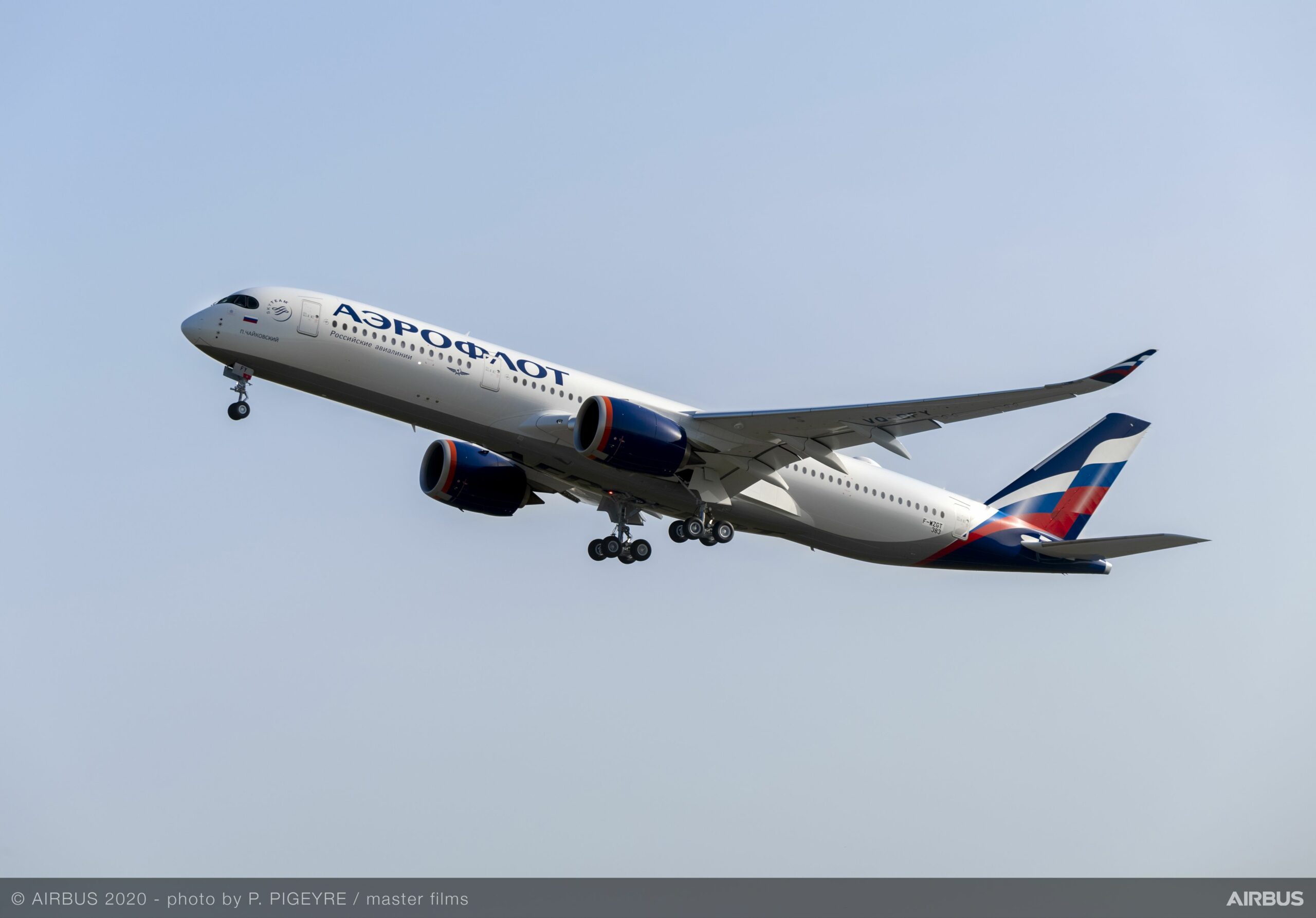
First A350 900 Aeroflot MSN383 taking off First flight scaled
The closure of US airspace to Russian aircraft that becomes effective at the end of today, March 2, is a delayed response to the same decision taken by the European Union and Canada on Sunday. “The United States stands with our allies and partners across the world in responding to Putin’s unprovoked aggression against the people of Ukraine,” said Transportation Secretary Pete Buttigieg said in a statement after President Biden announced the ban during his State of the Union on Tuesday. Closure US airspace to Russia mostly hits cargo flights.
The US ban applies to all Russian airlines and other civil aircraft, including business jets. The immediate impact on passenger services is limited, as Aeroflot stopped flying to the US on Sunday after it was unable to cross European and Canadian airspace. United Airlines was the sole US carrier that still used Russian airspace, but is said today that it will stop doing so. The carrier has suspended its services to India. Russia imposed a travel ban on airlines from 36 countries on Monday in response to the EU and Canadian sanctions.
The impact on cargo flights and the supply chain will be more significant. Russian cargo airlines AirBridge Cargo and Volga-Dnepr, which already were affected by the airspace closures last weekend, are now effectively cut off from their Western networks that saw multiple flights from Russia via Europe to the US. They have been flying on the Russian domestic network, with some flights to Hong Kong.
US express carriers UPS and FedEx said on Monday that they would suspend shipments to Russia. Both have been re-routing flights away from Russian airspace in the past few days, although Russia has formally to announce the closure of its airspace to US carriers.
The ones to benefit could be Japanese carriers ANA, and Japan Airlines. Although Japan has also imposed sanctions on Russia’s financial sector, its airlines are still able to use Russian airspace between Europe and Asia. This could lead to a shift of demand away from European, Russian, and US freighter carriers toward the Japanese ones thinks JP Morgan. Yet, Nippon Cargo Airlines said it has suspended flights to and from Europe on March 2 and 3, citing the potential restricted use of Russian airspace. “For European flights after the above, we will decide whether or not to operate with the highest priority on safety in consideration of the future situation”, says NCA. The carrier also announced further fuel surcharges on most of its flights. ANA and JAL followed suit on March 3 until further notice.
Opportunities could also come for Middle East airlines like Emirates and Qatar Airways if they have the capacity. The United Arab Emirates did abstain from voting when the United Nations Security Council discussed a US resolution against Russia last weekend, instead preferring to play the diplomacy card on Russia.
Views: 0



